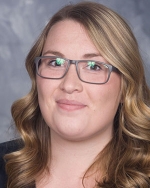Neonatal-Perinatal Medicine Fellowship Program
The Neonatal-Perinatal Medicine Fellowship, which is ACGME-accredited, is jointly sponsored by the Division of Neonatology and Children's MN.
Fellows in our program train in the Neonatal Intensive Care Unit (NICU) at the M Health Fairview Masonic Children's Hospital and Children's MN-St. Paul Campus. The M Health Fairview Masonic Children's Hospital NICU is ranked in the top cluster of four exceptional NICU sites, according to a national NICU organizational culture assessment conducted by The Wharton School at the University of Pennsylvania. For 2013, US News and World Report ranked UMMCH as one of the top 25 hospitals in the US for Neonatology. The ECMO center at the University of Minnesota Masonic Children's Hospital received the ELSO Award for Excellence in Life Support in 2013.
Overview & Sites
The Neonatal-Perinatal Fellowship Program consists of the following components as outlined by the Program Requirements for Education developed by the American Board of Pediatrics (ABP) and ACGME Resident Review Committee (RRC) for Neonatal‐Perinatal Medicine.
Fellows are assigned to these components in an educationally appropriate sequence over the usual 36 months of training. Overview of the Neonatal‐Perinatal Medicine Fellowship The NPM fellowship program, accredited by the ACGME Residency Review Committee for Pediatrics, which includes the American Board of Pediatrics, is jointly sponsored by the University of Minnesota (UMN) and Children’s MN— St. Paul (CHCM‐SP). The University NICU is located on the West Bank Campus in the University of Minnesota Masonic Children’s Hospital (UMMCH), and has ~750 annual admissions. CHCM‐SP has ~925 annual admissions. Twenty‐four neonatologists direct patient care and provide education at both institutions. Residents from the University of Minnesota Pediatric and Medicine-Pediatric Residency Program receive training in neonatology at both sites.
These hospitals serve a wide referral area geographically, with patients from all socioeconomic groups. The University NICU has a busy Level IV service providing all aspects of neonatal intensive care. The NICU and Maternal-Fetal Medicine (MFM) service at UMMCH receives patient referrals from throughout Minnesota, as well as North Dakota, South Dakota and western Wisconsin. The MFM service covers all types of referrals and has a large fetal echocardiography program in conjunction with the UMN pediatric cardiologists. The NICU serves as a referral source for other NICUs in the area, receiving patients with cardiac and surgical problems from the four‐state area. The NICU is also a national ECMO Center of Excellence, serving as a regional ECMO referral center, supporting 6‐10 ECMO patients per year. Additionally, the University service is involved in many collaborative clinical research projects with a dozen active clinical protocols enrolling at present. Approximately 25-30% of the annual admissions are transported either by ground ambulance or via fixed‐wing/helicopter air ambulance transport service. If interested, the neonatal‐perinatal medicine fellows may participate in the transport service.
Learn more about the University of Minnesota staff neonatologists
The NICU at Children’s MN–St. Paul serves the eastern metropolitan area and hospitals located in St. Paul, eastern Minnesota and western Wisconsin. Approximately 20 percent of the admissions are transported from these hospitals. The remaining 80 percent are born at United Hospital, located adjacent to CHCM‐SP, an active perinatal referral center for Minnesota and western Wisconsin. This NICU is a referral source for infants requiring non‐conventional ventilation and for infants requiring diagnostic evaluations of apnea.
Learn more about the staff Children's MN-St. Paul neonatologists
Stipend & Benefits
This page provides access to information on stipends and benefits for medical residents & fellows.
Additionally, each medical fellow receives:
- Funding of the ABP General Pediatrics Certifying Exam
- At least $1,500 for professional development
- At least $300 annually in education funds
- MN medical license, or MN residency permit if ineligible for a MN license
- AAP membership with subspecialty section membership
Prospective Fellows
We appreciate your interest in the University of Minnesota's Neonatal Fellowship Program and look forward to reviewing your application. The Neonatal-Perinatal Medicine Fellowship Program at the University of Minnesota participates in the National Resident Match Program and will accept applications only through the Electronic Residency Application Service (ERAS). We generally match for 3 candidates each year. Please feel free to contact the program if you have any questions that are not answered here on the webpage.
Please Note:
- Applicants must have completed an ACGME accredited residency program by the fellowship start date.
- We accept only applicants who are U.S. citizens or permanent residents (green card holders), or those who have a J-1 Visa.
- 3 letters of recommendation are required, preferably to include one from a neonatologist and one from the residency program director.
The University of Minnesota demonstrates a commitment to leveraging the transformative power of equity and diversity to advance excellence in teaching, learning and community engagement. Applications from individuals who self-identify as members of underrepresented groups are particularly welcome.
Support Our Fellowship
Bendel & Nuñez Fund for Neonatal-Perinatal Fellow Education & Career Development
This fund enriches the efforts of the University of Minnesota Medical School's Department of Pediatrics' Neonatal-Perinatal Fellowship program by establishing an education, research, and well-being funds for the benefit of the fellowship fund.
Benjamin Walker Hanson Neonatology Fund
Ben's Buddies is a nonprofit, all-volunteer group who raise money for the Benjamin Walker Hanson Neonatology Fund, part of the University of Minnesota Foundation. Our mission is to empower and support families and friends who have suffered the loss of a child while raising funds for newborn research & education.
Education & Clinical Information
Clinical Experience
The clinical curriculum is based on providing PL‐4 fellows (1st year) with a high degree of direct patient contact and responsibility on the NICU, and providing PL‐4/5/6 fellows graded supervisory responsibility for the PL‐1/2/3 residents, medical students and their patients. The first year consists of predominately clinical activities and the second two years are primarily for scholarly activity, combined with ongoing clinical work.
The fellowship requires 12‐15 months of clinical rotations consisting of a minimum of 12 months assigned to the NICU critical service, one month on cardiology, one senior month on the UMMCH intermediate care service and additional elective time as desired. Five to six months of the first year are spent rotating between the two NICUs as a clinical fellow (functioning as a junior staff person in the supervision of the hour‐to‐ hour care of critically ill newborn infants), along with the cardiology rotation. Fellows generally have the remaining six to seven months of critical clinical experience spread out during the second and third years. During the third year of clinical service, the fellow is expected to function fully as a junior attending neonatologist and will have the additional month on the UMMCH intermediate care service. Formal training in NRP, transport of the critically ill newborn infant and ECMO will be provided. Participation in the NICU Follow‐up Clinic is required during all three years of the fellowship. Participation in the Vermont Oxford Network is required for 6 months during the second year, with additional participation available on an elective basis. Elective clinical rotations include Maternal‐Fetal Medicine, other Pediatric Subspecialties, and International rotations.
The Maternal‐Fetal Medicine rotation is a month‐long elective that many fellows take during the first year. Rotating with the UMMCH maternal‐fetal medicine physicians provides exposure to and an appreciation of the prenatal diagnostic tests available, as well as the management of high‐risk pregnancies and preterm labor. Fellows attend high‐risk clinics and are involved in prenatal counseling of high‐risk patients. They may also work with our prenatal palliative care and hospice team.
Scholarly Activity
The majority of the Neonatal‐Perinatal Medicine Fellowship consists of 18‐20 months of scholarly activity. As per the ABP, “all fellows will be expected to engage in projects in which they develop hypotheses or in projects of substantive scholarly exploration and analysis that require critical thinking. Areas in which scholarly activity may be pursued include, but are not limited to: basic, clinical or translational biomedicine; health services; quality improvement; bioethics; education; and public policy.” Traditional clinical/basic research or other scholarly activities, within neonatology, perinatology and developmental biology are facilitated by the mentors in neonatology or other related subspecialties. Neonatologists and subspecialists in other pediatric divisions supervise these studies and are instrumental in guiding the development of individual projects with appropriate specific curriculum (e.g., laboratory meetings, journal clubs, course work).
Once an area of interest is identified, fellows will work with the program director, in addition to their specific mentor and scholarship oversight committee, to develop an individualized learning plan (ILP) for scholarly activity. The goals and objectives will then be individualized to address the specific area of scholarly investigation.
Collaborative Research
The University of Minnesota and Children’s MN–St. Paul have been involved in many national collaborative trials including studies on surfactant, inhaled nitric oxide, fluconazole and the STOP‐ROP consortium. The primary venue for collaborative work has been through participation in the Center for Neurobehavioral Development. Dr. Michael Georgieff is the director of this unique multidisciplinary resource for training and research across disciplines.
Additional collaborative research is ongoing between division members and members across the Department of Pediatrics as well as the Department of Laboratory Medicine and Pathology; the Institute of Child Development; the Department of Neurosurgery & Neuroscience; the Center for Immunology; and the Department of Veterinary Pathobiology. Several fellows have been supported on the Infectious Disease Training Grant and one completed a combined neonatal‐infectious disease fellowship. Opportunities to work with researchers in other areas at the University of Minnesota are also available. The following link provides a way to search for experts in your specific area of interest: http://experts.umn.edu
Graduate Studies
Fellows also have the opportunity to participate in graduate‐level coursework offered by the university, as well as to obtain a Master's of Clinical Research, Master's of Public Health, Master's in Health Informatics or Master's in Bioethics. Fellows have also obtained on-line certificate training in Quality Improvement and Pediatric Bioethics. The program is open to discussing options with each fellow for additional training. Participation and tuition payment cannot be guaranteed in advance and preapproval must be obtained from the program director.

Andrea Charara, MD
chara061@umn.edu
Fellowship Dates: 2023-2026

Sara Jones, DO
stran612@umn.edu
Fellowship Dates: 2023-2026

Kayla Solstad, MD
solst028@umn.edu
Fellowship Dates: 2023-2026

Debra Diepenbrock
diepe018@umn.edu
Fellowship Dates: 2023-2026

Naa-Lamle Lamptey
lampt017@umn.edu
Fellowship Dates: 2023-2026

Nicole Welke
welke100@umn.edu
Fellowship Dates: 2023-2026

Miranda Gathright
gathr004@umn.edu
Fellowship Dates: 2022-2025

Tabitha Tate
tate0142@umn.edu
Fellowship Dates: 2022-2025
Catherine M. Bendel, MD
Dr. Bendel’s current research involves multi-center clinical trials on the NICU, QI work, and projects related to GME and Diversity. Past clinical trials included fluconazole prophylaxis in ELBW infants, prevention of BPD in the TOLSURF trial, and the SCAMP trial to evaluate antibiotic therapy for NEC and complex intra-abdominal infections. Dr. Bendel is currently the site PI for the Aerofact trial of aerosolized surfactant and CPAP. Her work is supported by funding from the NHLBI, NIH, and industry. Historically, Dr. Bendel’s research involved the pathogenesis of infections due to Candida albicans and other Candida species in neonates. All work in that area is currently done in collaboration with Dr. Cheryl Gale and Dr. Marie HIckey - see their bios. Dr. Bendel in also the Associate Chair for Equity, Diversity and Inclusion for the Department of Pediatrics.
Melissa Engel, MD
Dr. Engel is on faculty at the University of Minnesota. Her research focus is improving detection of congenital heart disease by CCHD screening at the state level and quality improvement in the NICU. She directs the cardiovascular neurodevelopmental follow-up clinic and participates in the NICU follow-up clinic.
Cheryl A. Gale, MD
Dr. Gale is an established investigator in molecular pathogenesis mechanisms underlying Candida albicans infections. Her current research focus is to understand how early-life gut microbial communities, especially fungal microbiomes (mycobiomes) are established during infancy, and how gut microbes are involved in the development of short- and long-term health outcomes such as metabolism and brain function. Her research is funded by the NIH, and the University of Minnesota's Academic Health Center and Department of Pediatrics.
Michael K. Georgieff, MD
Dr. Georgieff is an established investigator in neonatal nutrition and metabolism and neurodevelopment. He has a joint appointment in Pediatrics and the Institute of Child Development and is a member of the Neuroscience Graduate Faculty. Dr. Georgieff is the chief of Neonatology and Co‐Director of the Center for Neurobehavioral Development (CNBD) at the University of Minnesota. He also directs the NICU Follow‐up Clinic Program at the University site. His research is on the impact of early nutrition on developmental outcome of infants, specifically studying the cellular and molecular mechanisms of placental iron transport and the neurologic sequelae of perinatal iron deficiency. He is supported by grants from the NIH (NICHD, and NINDS, NHLBI). Dr. Georgieff is also the Executive Vice Chair of the Department of Pediatrics.
Tate Gisslen, MD
Dr. Gisslen iis studying the effects of intrauterine inflammation/infection on both short term and long‐term neurodevelopmental outcomes. He is a CHRC scholar and his research is funded by the Viking's Children's Fund and NIH CHRCDA K12.
Sixto F. Guiang, III, MD
Dr. Guiang’s research focuses on clinical issues associated with ECMO.
Dana E. Johnson, MD, PhD
Dr. Johnson investigates the short‐ and long‐term medical and developmental effects of early childhood institutionalization and the outcome of children adopted internationally. Of particular interest is the relationship between stress and somatic/brain growth. His work is supported by the Minnesota Medical Foundation, the Viking Children’s Fund, the NIH, and Genentec. He is also a member of the CNBD.
Heidi Kamrath, DO
Dr. Kamrath joined the CHCM-SP faculty in 2016. She has a certificate in Pediatric Bioethics leading to the development of research projects focused on perinatal palliative care. Her current research interest focuses on shared decision making and the family experience in the NICU. She has also developed resident curriculum on bioethics and remains engaged in medical education through curriculum development for Pediatric End of Life Care.
Andrea Lampland, MD
Dr. Lampland performs translational research regarding neonatal ventilation and short-term pulmonary physiology. She performs investigatorinitiated local clinical studies in the NICU and utilizes a piglet model of RDS/ALI in her animal lab in the Infant Diagnostic and Research Center at CHCM‐SP. Her work has been funded by industry and the Children’s Hospital Internal Research Grant Program.
Erin Osterholm, MD
Dr. Osterholm's primary area of research includes the effects of stress on the developing brain, especially alterations in the hypothalamic‐ pituitaryadrenal axis. She works in collaboration with members of the Institute of Child Development and Center for Neurobehavioral Development on research examining the HPA axis and nutrition in small for gestational age infants. Dr. Osterholm also has an interest in neonatal resuscitation education and is a member of the NICU Simulation Core Team leading simulation based learning for residents and fellows.
Kathleen Pfister, MD
Dr. Pfister joined the faculty in 2013. Her research interests are in studying early neurodevelopmental outcomes of high‐risk preterm and term infants using ERP technology to evaluate memory function and speed of brain processing. She has evaluated memory function outcomes at various ages in term infants with HIE, and has also studied speed of visual processing in preterm infants as it relates to body composition and early nutrition.
Erin Plummer, MD
Dr. Plummer joined the faculty at Children's Minnesota - St. Paul in 2018. Her research interests include growth, body composition, and neurodevelopmental outcomes in children requiring neonatal surgery.
Sara Ramel, MD
Dr. Ramel is involved in several clinical research projects and is a faculty member in the Center for Neurobehavioral Development. She also is the director of the NICU Neonatal Nutrition Support Service. Her research interests are in growth and nutrition of preterm infants and their impact on long‐term developmental outcomes. Specifically, she is focused on early body composition changes and the effect of nutritional manipulations and illness on these changes, as well as the long‐term effects of these changes on later body composition and cognition. She is currently funded by the University of MN “R” award, the March of Dimes and the Minnesota Obesity Center.
Raghavendra Rao, MD
Dr. Rao is a core faculty member and Chair of the Scientific Advisory Committee at the Center for Neurobehavioral Development and is a Senior Faculty in the Graduate Program in Neuroscience. His research focus is brain energy metabolism, injury and neuroprotection during development. He is specifically interested in understanding the effects of early-life iron deficiency and hypoglycemia and hyperglycemia on the developing brain. He utilizes high‐field NMR spectroscopy, proteomic and metabolomic analyses, molecular analysis and histochemical analysis in his research. In addition, he investigates the neuroprotective efficacy of cord blood stem cells for intraventricular hemorrhage in extremely preterm infants. His research is funded by the NIH/NICHD, Regenerative Medicine Minnesota and Viking Children’s Fund. He is also the site-investigator for the multicenter Preterm Erythropoietin for Neuroprotection (PENUT) trial funded by the NINDS.
Kari Roberts, MD
Dr Roberts is the Director of NICU Clinical Research. Her research area of interest is neonatal resuscitation and invasive procedures. She is currently Principle Investigator of a national, multi-center, randomized controlled trial investigating the use of the Laryngeal Mask Airway for Surfactant Administration in Neonates. Dr Roberts is also the Director of NICU Simulation Training and has developed neonatal simulation labs and advanced procedural skills workshops for residents, fellows and neonatal nurse practitioners.
Katie Satrom, MD
Dr. Satrom's research seeks to optimize the management of neonatal jaundice in two distinctly vulnerable patient populations - pretem infants and infants born in low resource settings globally. She also leads a clinical study of jaundice in preterm infants, evaluating peripheral biomarkers of bilirubin and phototherapy effects using the metabolomic analysis of plasma. Dr. Satrom's other research interest is in global neonatal health, specially how to optimize the treatment of neonatal jaundice for infants in low-middle income countries. She collaborates with Dr. Tina Slusher on projects that aim to develop low cost and sustainable programs and equipment that improve phototherapy in low resource settings, specifically Sub-Saharan Africa.
Johannah Scheurer, MD
Dr. Scheurer's academic time focuses on both medical education and clinical research. She is the director of medical student and resident rotations on the UMMCH NICU and works in collaboration with the medical school and residency programs (Pediatrics and Medicine-Pediatrics) on these offerings. This includes quality improvement work related to neonatal resuscitation simulation programming and the neonatal fellows' engagement in house staff and student education. She works with the medical school in efforts to build and enhance competency-based assessment. She also collaborates with Dr. Ramel with clinical trials looking at long-term metabolic and neurodevelopmental outcomes related to growth and body composition.
Phu Tran, PhD
Dr. Tran’s research focuses on the effects of early-life adversity on brain development and function. He collaborates extensively with Drs. Georgieff and Rao to establish molecular and cellular mechanisms underlying the long-term effects of nutrient deficiency during late fetal and early postnatal life. Currently, his lab is funded (NINDS) to investigate the role of epigenetics in the long-term gene dysregulation associated with early-life iron deficiency. He is also investigating the function of a novel protein (TMEM35/NACHO), which has recently identified as an important factor for neuronal expression of nicotinic acetylcholine receptors (nAChRs). Dysfunction of nAChRs has been implicated in various neurological disorders including Autism, Schizophrenia, and neuropathic pain. Additional interests in Dr. Tran’s lab include elucidation of Calcium signaling in neonatal HIE brain injury and identification of serum markers and epigenetic signatures of cord blood derived-stem cells from neonatal HIE as well abstinence syndrome (NAS) babies (a collaboration with Dr. Asha Siddappa) and to index long-term risks of abnormal neurodevelopment. Dr. Tran has been supported by the Vikings’ Children Fund, Minnesota Medical Foundation, Masonic Children’s Hospital Research Fund, Department of Pediatrics “R” Award, NICHD, and NINDS.
Jameel Winter, MD
Dr. Winter joined the faculty in 2017 and is interested in improving neonatal care in low and middle income countries through implementation of resuscitation and early neonatal care training programs, as well as other globally targeted education programs. His research has focused on early childhood malnutrition in rural Cambodia, and he is interested in environmental enteropathy. He is also interested in utilization of simulation for medical education. During fellowship, he was involved in the planning and implementation of a multicenter RCT of a novel resuscitation technique for extremely preterm infants.
Taylor Brown, MD
Fellowship Dates: 2021-2024
Sara Stucker, MD
Fellowship Dates: 2021-2024
Sarah Swenson, MD
Fellowship Dates: 2021-2024
Contact Us
Fellowship Program Director
Johannah Scheurer, MD
Assistant Professor
krueg080@umn.edu
Placeholder
Fellowship Coordinator
Gina Finical
finical@umn.edu
(612) 625-3255
For more information on our other medical fellowship programs, click here.